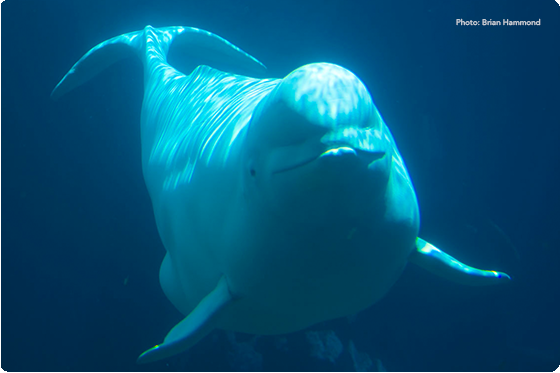
In August, NOAA Fisheries issued a permit to Mystic Aquarium in Connecticut to import five captive-born beluga whales from an amusement park in Ontario, Canada. Beluga whales, known for their white color and wide-ranging vocal sounds, are found in Alaskan waters and throughout the Arctic Ocean. Thirty members of the species are currently in captivity across the United States, with three located at Mystic Aquarium. The permit, which includes prohibitions on breeding and transferring the whales, has generated controversy and led to a lawsuit. In September of last year, environmental groups filed a complaint in federal district court challenging the permit. Friends of Animals v. National Marine Fisheries Service, (D. Conn. No. 3:20-cv-01312-AWT Sept. 3, 2020).
The Marine Mammal Protection Act (MMPA) prohibits the import and take of marine mammals; however, NOAA Fisheries may issue permits “for taking, and importation for purposes of scientific research, public display, photography for educational or commercial purposes, or enhancing the survival or recovery of a species or stock.” 16 U.S.C. § 1371. The import of depleted populations, or populations that have fallen below their optimum sustainable population levels, is subject to additional criteria under the MMPA. The parents of the whales identified in Mystic’s permit are from the Sakhalin Bay-Nikolaya Bay-Amur River Stock of beluga whales, a population designated as “depleted” by NOAA Fisheries.
The notice of the permit review in the Federal Register received nearly 10,000 online public comments. The agency ultimately issued Mystic’s requested five-year scientific research permit with restrictions, including a prohibition on interactive programs with the public. If the animals are imported, the permit requires Mystic Aquarium’s research findings to be “shared with researchers who study the depleted Sakhalin Bay-Nikolaya Bay-Amur River beluga whale stock and the endangered Cook Inlet beluga whale distinct population segment, as well as beluga whale researchers world-wide.”
The permit specifically prohibits breeding of any of the imported whales. In response, the aquarium developed a breeding prevention plan, which proposes periodic physical separation of the whales with clear acrylic gates. This plan would last for the duration of the five-year permit.
The permit also stipulates that NOAA Fisheries’ Office of Protected Resources must approve transport of any of the imported whales to Georgia Aquarium, which is partially funding Mystic’s purchase of the whales, and disposition of the whales at the end of research. Mystic’s permit application had noted that the whales could eventually be transported to the Georgia Aquarium. Both aquariums participate in a breeding cooperative that allows the transfer of beluga whales to increase breeding opportunities. Georgia Aquarium had attempted to import eighteen beluga whales from Russia in 2012, but NOAA Fisheries denied the permit. A federal district court upheld NOAA Fisheries’ decision in 2015.
The current lawsuit, filed by Friends of Animals and later joined by Last Chance for Animals, claims that “[b]eluga whales do not belong in captivity. They are highly social and intelligent animals who roam large distances in the wild.” The groups allege that the permit violates importation, research, and procedural requirements of the MMPA. Further, they claim NOAA Fisheries failed to analyze harms that the permit would cause beluga whales in violation of National Environmental Policy Act (NEPA). The complaint also notes that importation of the beluga whales would mean that the marine animals would no longer be under the protection of Canada’s 2019 laws banning the display and breeding of cetaceans in captivity.
In January, the aquarium agreed that it would not import the animals before March 31, 2021. The delay will give the court time to review the permit. If the judge determines that NOAA Fisheries’ decision to issue the permit is in line with federal law, the aquarium may import the beluga whales but must adhere to the conditions established in the permit.
But for now, the parties and interested observers must patiently await the District of Connecticut’s decision.












